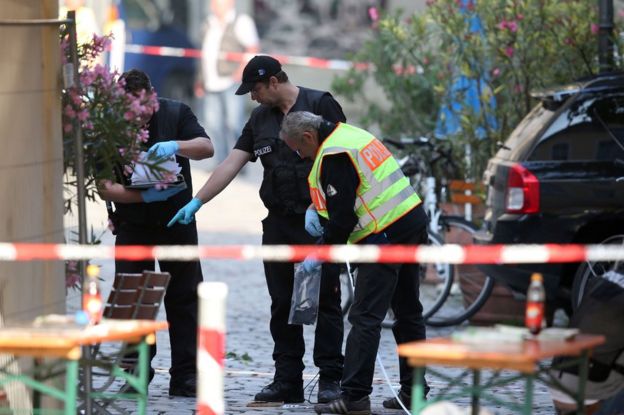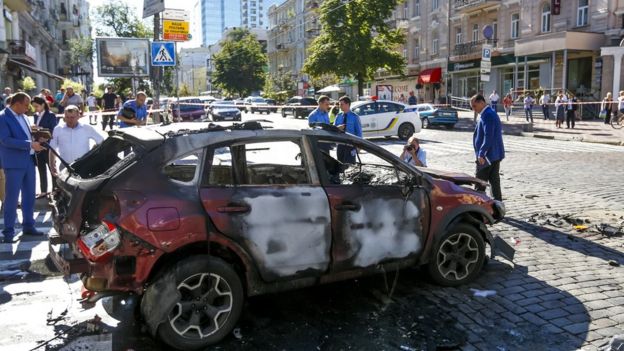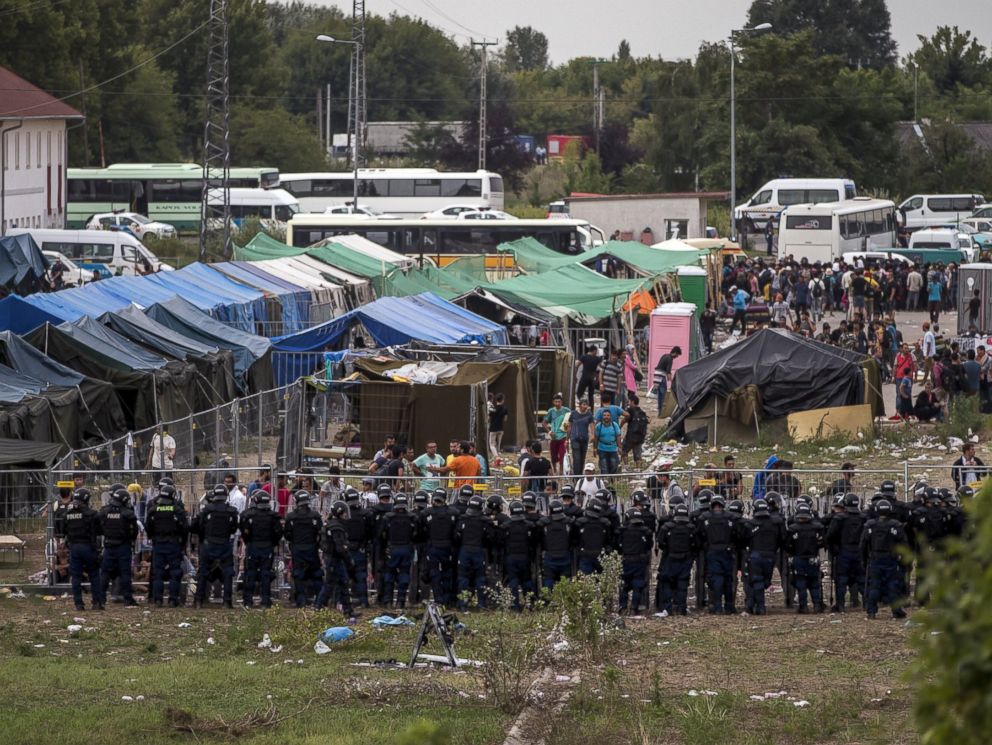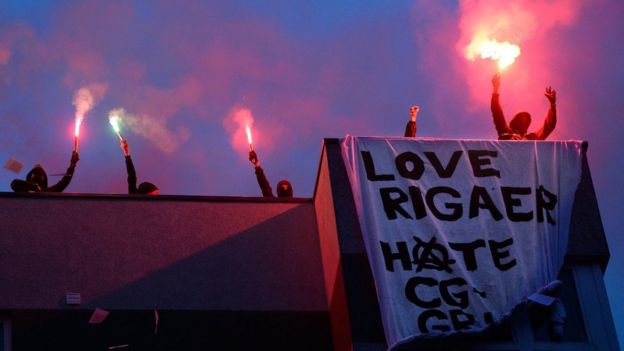By Sarah Lafen
Impunity Watch Desk Reporter, Europe
LONDON, England — As part of an emerging Black Lives Matter movement in Britain, black rights activists staged several protests across the country on Friday in efforts to demonstrate their opposition to racial injustices. Black Lives Matter U.K. called for a “nationwide shutdown” to protest these injustices, which include police brutality, racial disparities in arrests, treatment of immigrants who are being held in detention, and a reported increase in hate crimes since the Brexit announcement on June 23, 2016. Activists also brought attention to deaths that occur during stop-and-searches in Britain.
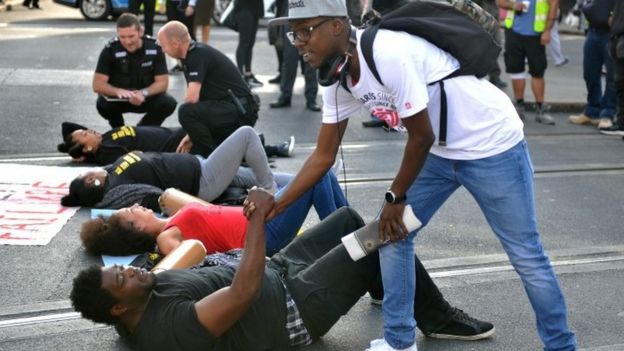
One of the demonstrations took place at Heathrow Airport, where Black Lives Matter campaigners blocked one of the major roads leading in to the airport. Activists at the Heathrow demonstration unrolled a giant banner reading “This is a crisis” and laid down across an access road leading in to the airport. Traffic was blocked for several hours, and the police arrested 10 people in connection with this particular demonstration.
Other cities were affected by these protests as well. Activists in Birmingham linked themselves together to block roads leading to Birmingham airport, and activists in Nottingham laid down across train tracks so as to halt the tram network. In Altab Ali Park, approximately 300 protestors gathered to support unbiased treatment for people of color. Police were present at the park, which was named after Bangladeshi man who died in 1978 as a result of a racially-motivated killing.
London-based Black Lives Matter Activist Adam Elliot-Cooper explained that the reasoning behind staging one of these demonstrations at Heathrow was appropriate because many people are being killed at the borders of Britain, or alternatively are being sent back to “certain death” in their countries of origin. Black Lives Matter protest organizer Joshua Virasami called for “black people all over the world to come together” to achieve justice in Britain and across the world. Cara Thompson, organizer of the Nottingham protest, brought attention to the global presence of this issue, telling reporters that they “need people to listen…to what is happening to black people – not just in the USA.”
The protests were purposely staged to take place on the fifth anniversary of the death of Mark Duggan, a 29-year old black man shot and killed by police in London.
For more information, please see:
BBC — Black Lives Matter Movement ‘Needed in UK — 5 August 2016
CNN — Black Lives Matter UK Blocks London’s Heathrow Airport — 5 August 2016
NY Times — Black Lives Matter Activists Stage Protests Across Britain — 5 August 2016
USA Today — Black Lives Matter Protestors Block Airport Road in U.K. — 5 August 2016
